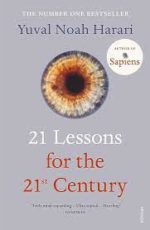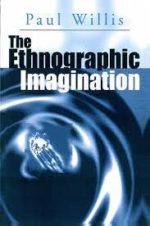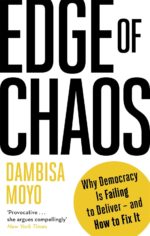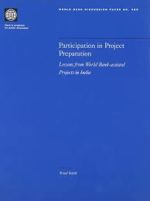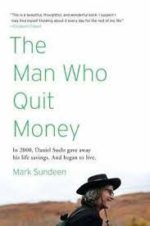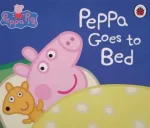-
21 Lessons for The 21St Century Paperback
KSh 1,695.00The future is here. Learn to live in it.
In twenty-one bite-sized lessons, Yuval Noah Harari explores what it means to be human in an age of bewilderment.
How can we protect ourselves from nuclear war, ecological cataclysms and technological disruptions? What can we do about the epidemic of fake news or the threat of terrorism? What should we teach our children?
Yuval Noah Harari takes us on a thrilling journey through today’s most urgent issues. The golden thread running through his exhilarating new book is the challenge of maintaining our collective and individual focus in the face of constant and disorienting change. Are we still capable of understanding the world we have created?
‘Fascinating… compelling… [Harari] has teed up a crucial global conversation about how to take on the problems of the 21st century’ Bill Gates, New York Times
‘Truly mind-expanding… Ultra-topical’ Guardian
‘21 Lessons is, simply put, a crucial book’ Adam Kay
-
Beyond Buzz-Lois Kelly
KSh 1,500.00Tied for the Gold Medal in the first annual Axiom Business Awards, sponsored by Inc. Magazine.
It’s official: the old marketing model is dead, and word of mouth is king. But while a lot of attention has been paid to the mechanics of creating buzz, only the savviest of marketers have learned to focus on crafting the right kind of message — because without it, even the loudest buzz will soon die down. Beyond Buzz shows readers how to listen to customers, identify what is important to them, and then craft the kind of message that will truly resonate and spark conversation.
Filled with insightful examples of conversational marketing at work, Beyond Buzz gives readers the tools and inspiration they need to create an effective and interesting conversational theme that will engage their customers and take their marketing to a whole new level.
Without the right message in place, word of mouth marketing will never live up to its promise. This innovative and practical book shows readers how to ignite people’s interest…and generate much more than buzz.
-
Embrace Change for Success
KSh 1,495.00SUCCESS IN ONE’S CAREER IS DYNAMIC-NOT STATIC Whether it is on the job or in our personal lives, if we want to make progress, we must be willing to make changes-often major changes-in the way we do our jobs or live our lives. In this book, Dale Carnegie looks at the reasons why people often resist change and the steps that can be taken to overcome this resistance, through examples drawn from both personal and professional situations. He explains the overall concept of making change work for you, and provides suggestions on how these changes can help you on the road to success. Change may be mandated by ever-changing technologies. A downslide in economic factors may necessitate changes in systems and methods, to ensure survival. Conversely, change may become necessary after a surge in economy, in order to meet the new rise in demand of your services or goods.
The areas covered in this book are:
•Change as a step toward success
•Adjusting to change
•How and when change should be initiated
•How to deal with change as part of a team
•Reducing stress when dealing with change
•Adjusting to working with people of diverse cultures
•The gender and generational gaps in the workplace
Reading this book can be the first step for you in coping with change, to start you on the track that has helped people in all careers to accept, adjust to, and often initiate changes that enabled their organizations to not only survive, but thrive, resulting in the acceleration of their own progress to success.About the Author
Dale Breckenridge Carnegie (November 24, 1888 – November 1, 1955) was an American writer and lecturer and the developer of famous courses in self-improvement, salesmanship, corporate training, public speaking and interpersonal skills. Born in poverty on a farm in Missouri, he was the author of ‘How to Win Friends and Influence People’, first published in 1936, a massive bestseller that remains popular today. He has written several other books as well which are still popular and relevant to all generations and age groups.
-
The $100 Startup: Reinvent the Way You Make a Living, Do What You Love, and Create a New Future
KSh 1,495.00“Thoughtful, funny, and compulsively readable, this guide shows how ordinary people can build solid livings, with independence and purpose, on their own terms.”—Gretchen Rubin, author of the #1 New York Times bestseller The Happiness Project
Still in his early thirties, Chris Guillebeau completed a tour of every country on earth and yet he’s never held a “real job” or earned a regular paycheck. Rather, he has a special genius for turning ideas into income, and he uses what he earns both to support his life of adventure and to give back.
Chris identified 1,500 individuals who have built businesses earning $50,000 or more from a modest investment (in many cases, $100 or less), and focused on the 50 most intriguing case studies. In nearly all cases, people with no special skills discovered aspects of their personal passions that could be monetized, and were able to restructure their lives in ways that gave them greater freedom and fulfillment.
Here, finally, distilled into one easy-to-use guide, are the most valuable lessons from those who’ve learned how to turn what they do into a gateway to self-fulfillment. It’s all about finding the intersection between your “expertise”—even if you don’t consider it such—and what other people will pay for. You don’t need an MBA, a business plan or even employees. All you need is a product or service that springs from what you love to do anyway, people willing to pay, and a way to get paid.
Not content to talk in generalities, Chris tells you exactly how many dollars his group of unexpected entrepreneurs required to get their projects up and running; what these individuals did in the first weeks and months to generate significant cash; some of the key mistakes they made along the way, and the crucial insights that made the business stick. Among Chris’s key principles: If you’re good at one thing, you’re probably good at something else; never teach a man to fish—sell him the fish instead; and in the battle between planning and action, action wins.
In ancient times, people who were dissatisfied with their lives dreamed of finding magic lamps, buried treasure, or streets paved with gold. Today, we know that it’s up to us to change our lives. And the best part is, if we change our own life, we can help others change theirs. This remarkable book will start you on your way.
-
Managing Transitions: Making The Most Of Change
KSh 1,295.00In Managing Transitions, William Bridges provides a clear understanding of what change does to employees and what employees in transition can do .The business world is constantly transforming. When restructures, mergers, bankruptcies, and layoffs hit the workplace, employees and managers naturally find the resulting situational shifts to be challenging. But the psychological transitions that accompany them are even more stressful. Organizational transitions affect people; it is always people, rather than a company, who have to embrace a new situation and carry out the corresponding change.
As veteran business consultant William Bridges explains, transition is successful when employees have a purpose, a plan, and a part to play. This indispensable guide is now updated to reflect the challenges of today’s ever-changing, always-on, and globally connected workplaces. Directed at managers on all rungs of the corporate ladder, this expanded edition of the classic bestseller provides practical, step-by-step strategies for minimizing disruptions and navigating uncertain times.
-
And the Mountains Echoed Paperback
KSh 1,295.00From the no. 1 bestselling author of The Kite Runner and A Thousand Splendid Suns, the book that readers everywhere have been waiting for: his first novel in six years. So, then. You want a story and I will tell you one… Afghanistan, 1952. Abdullah and his sister Pad live with their father and step-mother in the small village of Shadbagh. Their father, Saboor, is constantly in search of work and they struggle together through poverty and brutal winters. To Adbullah, Pad, as beautiful and sweet-natured as the fairy for which she was named, is everything. More like a parent than a brother, Abdullah will do anything for her, even trading his only pair of shoes for a feather for her treasured collection. Each night they sleep together in their cot, their skulls touching, their limbs tangled. One day the siblings journey across the desert to Kabul with their father. Pad and Abdullah have no sense of the fate that awaits them there, for the event which unfolds will tear their lives apart; sometimes a finger must be cut to save the hand. Crossing generations and continents, moving from Kabul, to Paris, to San Francisco, to the Greek island of Tinos, with profound wisdom, depth, insight and compassion, Khaled Hosseini writes about the bonds that define us and shape our lives, the ways that we help our loved ones in need, how the choices we make resonate through history, and how we are often surprised by the people closest to us.
-
The Ethnographic Imagination
KSh 1,200.00In this book Paul Willis, a renowned sociologist and ethnographer, aims to renew and develop the ethnographic craft across the disciplines. Drawing from numerous examples of his own past and current work, he shows that ethnographic practice and the ethnographic imagination are vital to understanding the creativity and irreducibility of experience in all aspects of social and cultural practice.
Willis argues that ethnography plays a vital role in constituting ‘sensuousness’ in textual, methodological, and substantive ways, but it can do this only through the deployment of an associated theoretical imagination which cannot be found simply there in the field. He presents a bold and incisive ethnographically oriented view of the world, emphasizing the need for a deep-running social but also aesthetic sensibility. In doing so he brings new insights to the understanding of human action and its dialectical relation to social and symbolic structures. He makes original contributions to the understanding of the contemporary human uses of objects, artefacts and communicative forms, presenting a new analysis of commodity fetishism as central to consumption and to the wider social relations of contemporary societies. He also utilizes his perspective to further the understanding of the contemporary crisis in masculinity and to cast new light on various lived everyday cultures – at school, on the dole, on the street, in the Mall, in front of TV, in the dance club.
This book will be essential reading for all those involved in planning or contemplating ethnographic fieldwork and for those interested in the contributions it can make to the social sciences and humanities.
-
Unlimited Power-Anthony Robbins
KSh 1,095.00If you have ever dreamed of a better life, Unlimited Power will show you how to achieve the extraordinary quality of life you desire and deserve. Anthony Robbins has proven to millions through his books, tapes and seminars that by harnessing the power of your mind you can do, have, achieve and create anything you want for your life. Unlimited Power is a revolutionary fitness book for the mind. It will show you, step by step, how to perform at your peak while gaining emotional and financial freedom, attaining leadership and self-confidence and winning the co-operation of others. Unlimited Power is a guidebook to superior performance in an age of success.
-
-
The Man Who Quit Money Paperback
KSh 1,000.00In 2000, Daniel Suelo left his life savings-all thirty dollars of it-in a phone booth. He has lived without money-and with a newfound sense of freedom and security-ever since. The Man Who Quit Money is an account of how one man learned to live, sanely and happily, without earning, receiving, or spending a single cent. Suelo doesn’t pay taxes, or accept food stamps or welfare. He lives in caves in the Utah canyonlands, forages wild foods and gourmet discards. He no longer even carries an I.D. Yet he manages to amply fulfill not only the basic human needs-for shelter, food, and warmth-but, to an enviable degree, the universal desires for companionship, purpose, and spiritual engagement. In retracing the surprising path and guiding philosophy that led Suelo into this way of life, Sundeen raises provocative and riveting questions about the decisions we all make, by default or by design, about how we live-and how we might live better.
-
Middle School: Just my rotten luck
KSh 995.00In this seventh Middle School episode, Rafe heads back to the place his misadventures began: the dreaded Hills Village Middle School, where he’s now being forced to take ‘special’ classes… He also finds himself joining the school’s football team – alongside his main tormenter, Miller the Killer!
But Rafe has grand plans for a better year: First, he decides to start a super-secret art project that’s sure to rock the school. Then, if Rafe manages to make a play to save his team, he might have to deal with something completely new: popularity!
-
The Age of the Warrior-ROBERT FISK
KSh 995.00The Age of the Warrior: Selected Writings by Robert Fisk
A selection of Robert Fisk’s finest ‘Comment’ pieces from the Saturday Independent.
Robert Fisk has amassed a devoted readership over the years, with his insightful, witty and always outspoken articles on international politics and mankind’s war-torn recent history. He is best known for his writing about the Middle East, its wars, dictators and international relations, but these ‘Comment’ articles cover an array of topics, from his soldier grandfather to handwriting to the Titanic – and of course, President Bush, terrorism and Iraq.
-
Sea Quest: Hydror the Ocean Hunter
KSh 695.00Adam Blade is the creator of the hugely successful BEAST QUEST and SEA QUEST.
A terrifying new Robobeast is about to be unleashed! All is not as it seems in Aquora. With traitors in their midst, can Max and Lia prevent the colossal leopard seal Hydror from being turned into a deadly weapon?
-
Having Fun With Phonics Working With Sounds 2
KSh 695.00Step into the enchanting world of phonics with our “PHONICS BOOKS” series, where learning is an adventure filled with fun and discovery. “Having Fun with Phonics-2” are delightful members of this series, featuring glossy finished covers and secure pin binding to ensure longevity. This book are thoughtfully designed to introduce children to the fascinating realm of phonics, helping them grasp the fundamentals of reading and language. Vibrant illustrations, engaging exercises, and captivating stories make phonics an enjoyable and interactive experience. As children progress through these pages, they will unlock the keys to reading success while having a blast. Parents and educators will appreciate the sturdiness of this book, which can withstand the test of time and eager young readers. “PHONICS BOOKS” are the perfect companions for children’s literacy journey, igniting their passion for reading and language, one page at a time.
-
Peppa Goes to Bed
KSh 695.00It’s bedtime, but Peppa and George are not sleepy! Will having a bath, brushing their teeth and listening to a story get them ready for bed?
-
Men In Love
KSh 650.00This is a book about men who love women. But it is not a collection of love stories. It is a study of the secret, erotic fantasies that men have always kept hidden, a taboo-shattering investigation that reveals the deepest, most conflicting feelings that men have about women, men and their own sexuality.
Men in Love goes beyond the socio-sexual cliché of woman seen as either madonna or whore to reveal the conflict of love and rage at the centre of men’s emotions and erotic desires. Based on thousands of candid responses from men ranging from their teens to their sixties, Men in Love – startling and shocking – will change men’s deepest feelings about their sexuality and make the women who care about them understand them as never before.
-
Tess of the D’Urbervilles
KSh 650.00Young Tess Durbeyfield attempts to restore her family’s fortunes by claiming their connection with the aristocratic d’Urbervilles. But Alec d’Urberville is a rich wastrel who seduces her and makes her life miserable. When Tess meets Angel Clare, she is offered true love and happiness, but her past catches up with her and she faces an agonizing moral choice. Thomas Hardy’s indictment of society’s double standards, and his depiction of Tess as “”a pure woman,”” caused controversy in his day and has held the imagination of readers ever since. Hardy thought it his finest novel and Tess the most deeply felt character he ever created.
-
Sinners
KSh 650.00Hollywood: glittering premiers, dazzling movie sets, fabulous parties, plush love-nests hidden in Malibu and Beverly Hills. Behind the gorgeous playgrounds of the rich and famous lies a jungle of lust and perversity, greed and ambition, love and danger- where survival is all and innocence is a role nobody plays for long.

